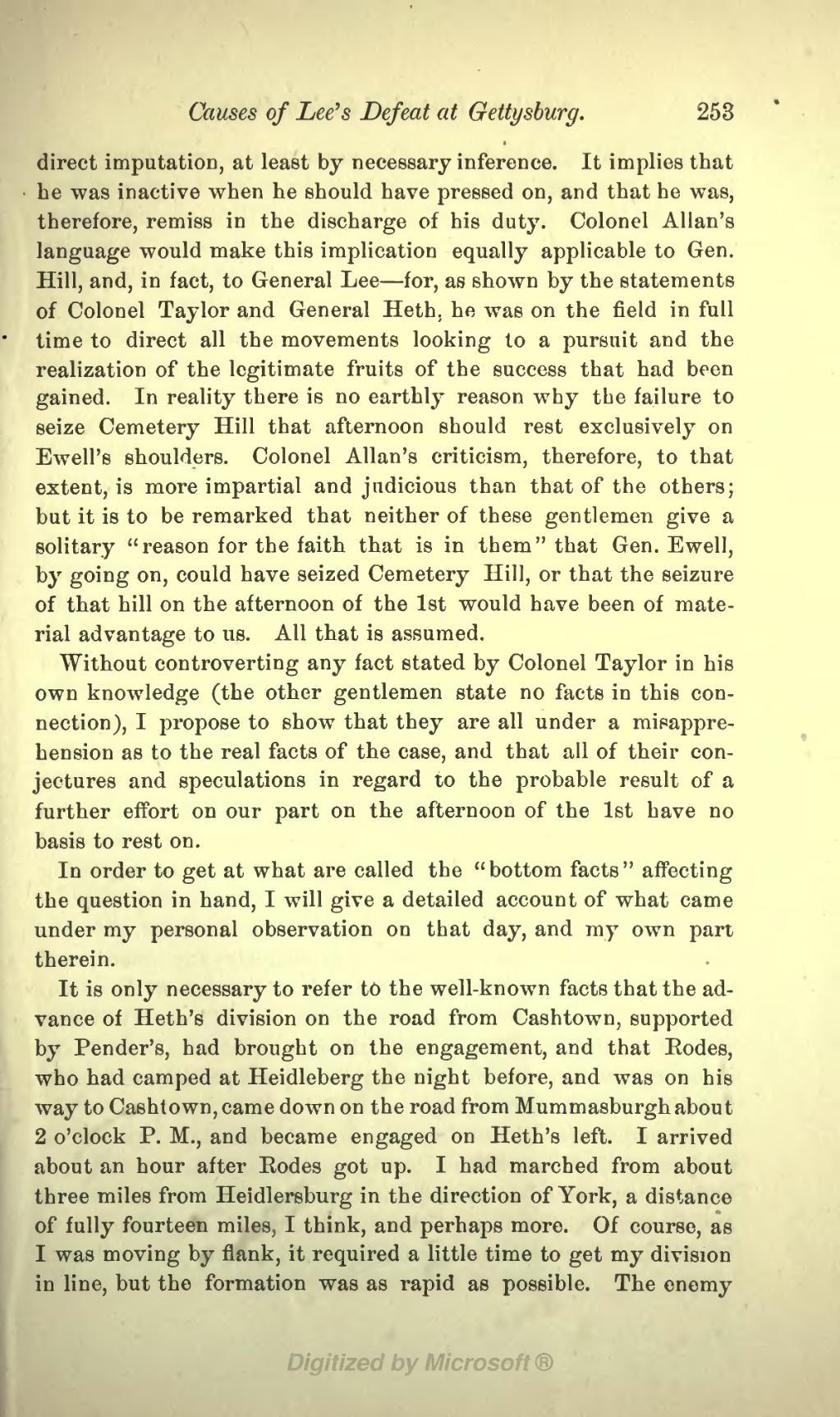direct imputation, at least by necessary inference. It implies that he was inactive when he should have pressed on, and that he was, therefore, remiss in the discharge of his duty. Colonel Allan's language would make this implication equally applicable to Gen. Hill, and, in fact, to General Lee—for, as shown by the statements of Colonel Taylor and General Heth, he was on the field in full time to direct all the movements looking to a pursuit and the realization of the legitimate fruits of the success that had been gained. In reality there is no earthly reason why the failure to seize Cemetery Hill that afternoon should rest exclusively on Ewell's shoulders. Colonel Allan's criticism, therefore, to that extent, is more impartial and judicious than that of the others; but it is to be remarked that neither of these gentlemen give a solitary "reason for the faith that is in them" that Gen. Ewell, by going on, could have seized Cemetery Hill, or that the seizure of that hill on the afternoon of the 1st would have been of material advantage to us. All that is assumed.
Without controverting any fact stated by Colonel Taylor in his own knowledge (the other gentlemen state no facts in this connection), I propose to show that they are all under a misapprehension as to the real facts of the case, and that all of their conjectures and speculations in regard to the probable result of a further effort on our part on the afternoon of the 1st have no basis to rest on.
In order to get at what are called the "bottom facts" affecting the question in hand, I will give a detailed account of what came under my personal observation on that day, and my own part therein.
It is only necessary to refer to the well-known facts that the advance of Heth's division on the road from Cashtown, supported by Pender's, had brought on the engagement, and that Rodes, who had camped at Heidleberg the night before, and was on his way to Cashtown, came down on the road from Mummasburgh about 2 o'clock P. M., and became engaged on Heth's left. I arrived about an hour after Rodes got up. I had marched from about three miles from Heidlersburg in the direction of York, a distance of fully fourteen miles, I think, and perhaps more. Of course, as I was moving by flank, it required a little time to get my division in line, but the formation was as rapid as possible. The enemy
